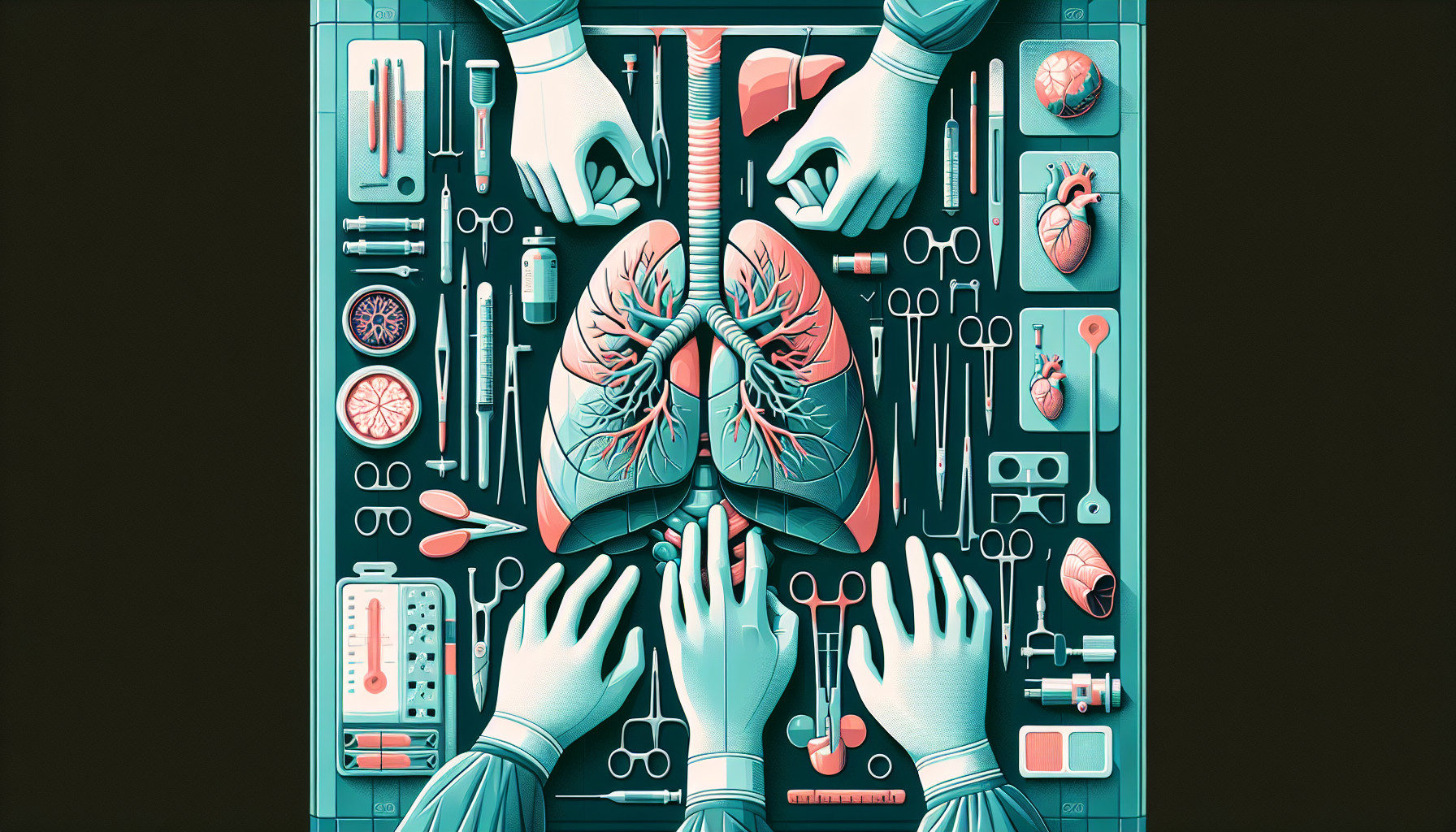Our Summary
This study looks at whether the number of surgeries a hospital or a surgeon performs each year affects the outcomes for infants undergoing elective lung surgery for a type of birth defect in the lung. The researchers analyzed data from 1,420 infants who had this surgery at 48 different hospitals, performed by 309 different surgeons. They found that hospitals and surgeons who performed fewer surgeries each year had higher rates of complications after the surgery. This suggests that having more experience with this type of surgery can lead to better outcomes for the infants. This information could be useful for improving the quality of care for infants with this birth defect and could influence discussions about whether it would be beneficial to have surgeons specialize in this type of surgery.
FAQs
- Does the number of surgeries a hospital or surgeon performs annually affect the outcomes of infant lung surgeries?
- Is there a correlation between a surgeon’s experience and the rates of complications in infant lung surgeries?
- Could specialization in this type of surgery lead to improved quality of care for infants with lung birth defects?
Doctor’s Tip
A helpful tip a doctor might tell a patient about lung resection is to choose a surgical team that has experience and expertise in performing this type of surgery. Research shows that hospitals and surgeons who perform more surgeries each year tend to have better outcomes and lower rates of complications. Therefore, it is important to discuss the experience and track record of the surgical team before undergoing a lung resection procedure.
Suitable For
Patients who are typically recommended for lung resection include those with lung cancer, lung infections such as tuberculosis or fungal infections, benign lung tumors, lung abscesses, and certain types of lung diseases such as chronic obstructive pulmonary disease (COPD) or bronchiectasis. In some cases, lung resection may also be recommended for patients with severe emphysema or pulmonary hypertension. Additionally, lung resection may be recommended for patients who have suffered trauma to the lung or have a collapsed lung. It is important for patients to discuss their specific condition with their healthcare provider to determine if lung resection is the best treatment option for them.
Timeline
Before lung resection:
- Patient is diagnosed with a lung condition that requires surgical intervention.
- Patient undergoes preoperative tests and evaluations to assess their overall health and suitability for surgery.
- Patient meets with their surgeon to discuss the procedure, risks, and potential outcomes.
- Surgery date is scheduled and patient receives instructions on preoperative preparation, such as fasting and medication adjustments.
After lung resection:
- Patient undergoes the lung resection surgery, which may involve removing a portion of the lung or the entire lung.
- Patient is closely monitored in the recovery room for any immediate complications.
- Patient is transferred to a hospital room for further monitoring and recovery.
- Patient may experience pain, discomfort, and difficulty breathing in the days following surgery.
- Patient receives postoperative care, including pain management, breathing exercises, and physical therapy.
- Patient is discharged from the hospital once they are stable and able to care for themselves at home.
- Patient follows up with their surgeon for postoperative appointments to monitor their healing progress and address any concerns.
What to Ask Your Doctor
How many lung resections have you performed in the past year?
What are the potential risks and complications associated with lung resection surgery?
What is your success rate with lung resection surgeries?
How long is the recovery process after lung resection surgery?
Are there any alternative treatment options to lung resection that I should consider?
Will I need any additional tests or evaluations before undergoing lung resection surgery?
What type of anesthesia will be used during the surgery?
How long will I need to stay in the hospital after the surgery?
What can I expect in terms of pain management after the surgery?
Are there any long-term effects or complications I should be aware of after undergoing lung resection surgery?
Reference
Authors: Engwall-Gill AJ, Weller JH, Salvi PS, Sescleifer AM, Penikis AB, Sferra SR, Halbert-Elliott KM, Rhee DS, Solomon DG, Kunisaki SM. Journal: Ann Surg. 2025 Jul 1;282(1):138-145. doi: 10.1097/SLA.0000000000006261. Epub 2024 Mar 13. PMID: 38477121
